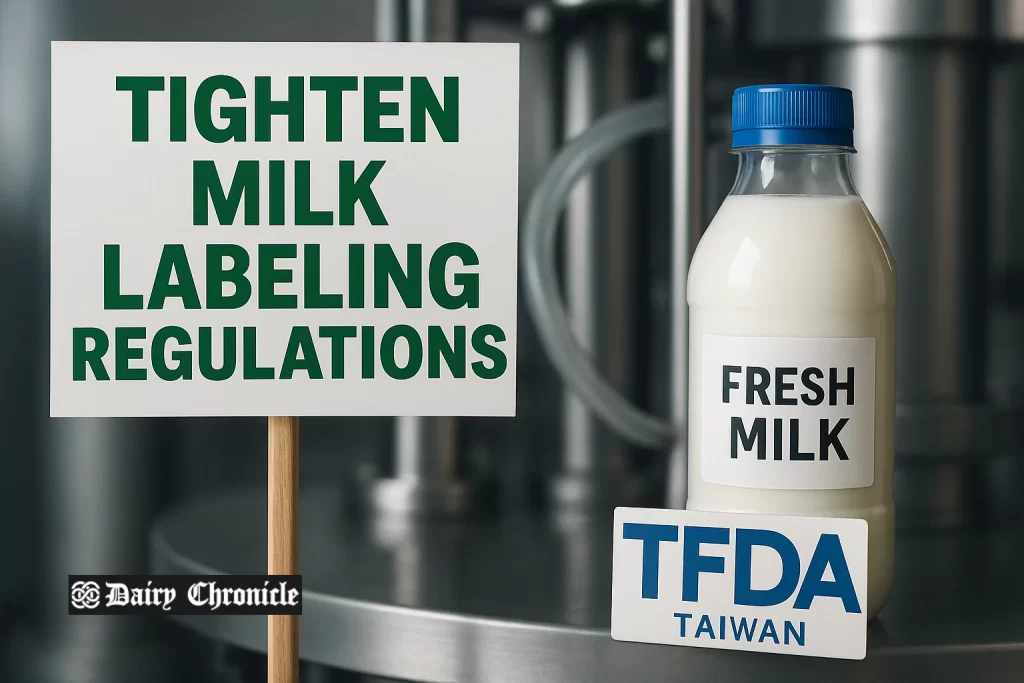Lawmakers from Taiwan’s Democratic Progressive Party (DPP) and local dairy farmers raised strong concerns over milk labeling regulations in Taipei, Taiwan. They urged the Taiwan Food and Drug Administration (FDA) to implement stricter rules to protect consumers and domestic agriculture from misleading practices by some milk importers and manufacturers.
Legislators from the Democratic Progressive Party (DPP) and local dairy farmers in Taiwan have called for urgent reforms to milk labeling regulations, urging the Taiwan Food and Drug Administration (FDA) to enhance rules for content labeling in the dairy sector.
Although a recent rule mandates that only 100% pure milk can be labeled as “fresh milk,” DPP Legislator Chung Chia-pin argued that current regulations remain inadequate. He highlighted that not all milk-based products are required to list their contents, allowing foreign imports—such as Australian milk with additives—to be misleadingly packaged and marketed as fresh milk.
“We cannot allow packaging to deceive consumers,” Chung said. “We need rules that match the European Union’s standards to ensure quality and clarity.”
The FDA stated that marketing commercial-grade milk as fresh milk is already illegal under labeling laws, and violations can result in fines of up to NT$4 million (approximately USD 133,534). However, enforcement and clarity remain issues.
Dairy farmer Chen Tung-chieh, representing Gau Dah Ranch Co, expressed concerns about unfair competition from cheaper imported milk products that are labeled as natural despite containing additives. He emphasized the need for fair labeling to preserve Taiwan’s domestic dairy sector.
DPP Legislator Jean Kuo echoed these concerns, especially regarding milk used in school lunch programs. “Transparency is crucial when it comes to what children are drinking in schools,” she stated, calling for labeling reforms that ensure informed choices.
The coalition of lawmakers and farmers has intensified its efforts to protect both consumers and Taiwan’s agricultural sustainability by pushing for immediate policy action on labeling clarity.



